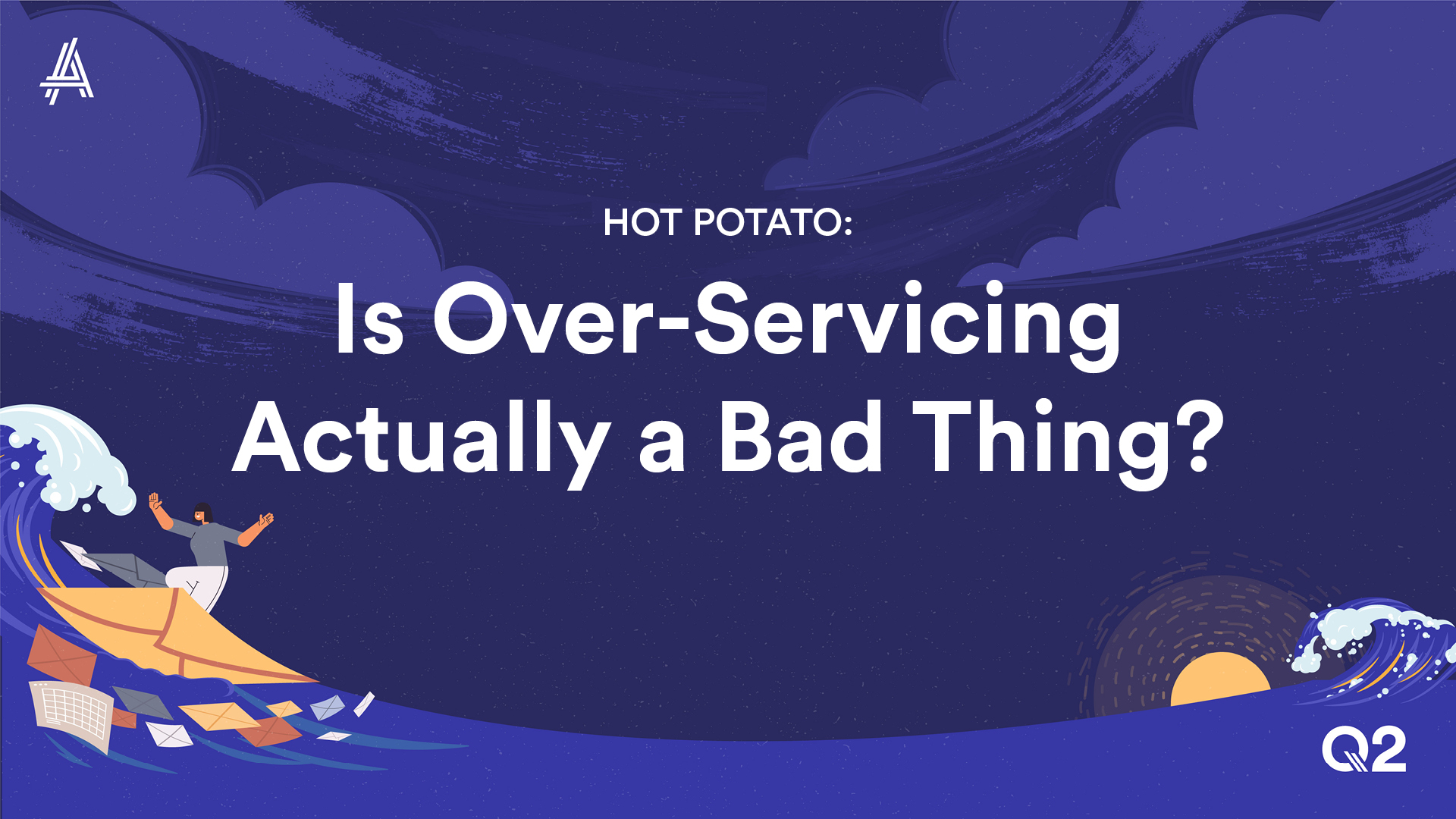• When it comes to over-servicing, agencies take very different stances.
• While some actively avoid it, others deem it a strategic choice for success and biz dev.
• What say you? Come along and debate whether over-servicing is actually a bad thing with the rest of the Agency Hackers gang.

Where do you stand on over-servicing?
For some agencies, it’s something they actively try to avoid.
“If you give stuff away for free, it devalues you and your team’s work and some – not all – clients will likely take the piss,” says one agency leader.
However, for some agencies, over-servicing is a strategic choice.
This can be to satisfy the client, or to even go further and view it as biz dev, offsetting their over-servicing with the client’s potential future value to them.
It could also be incredibly tricky not to over-service depending on the nature of the project.
“I’m all for running a tight ship, but the best way to win business is from existing business. Over-servicing is fine, but only as long as it’s intentional,” says one agency leader.
Another agency leader says over-servicing is something they typically have to do.
“We over-service a lot, by choice,” they say.
“My stance is, we’re in the creative industry, and people don’t and can’t work to the minute. It’s not the client’s problem if we can’t come up with a great creative brief in seven and a half hours, or if our editor is having a bit of a creative block today.”
“Don’t get me wrong, we track time across two out three of our billable teams, but unless it’s the client who’s adding time with scope creep or brief changes, then it’s on us. And it’s just totally unfeasible to pull the cord on a project before it’s finished because we’ve run out of the estimated time.”
What say you?
- Is there a difference between adding value and over-servicing?
- Should we even be calling it over-servicing, if it’s an active choice to further new biz and client relationships?
- Does active or strategic over-servicing actually make much difference?
Come along and share your thoughts and experiences on this one.
